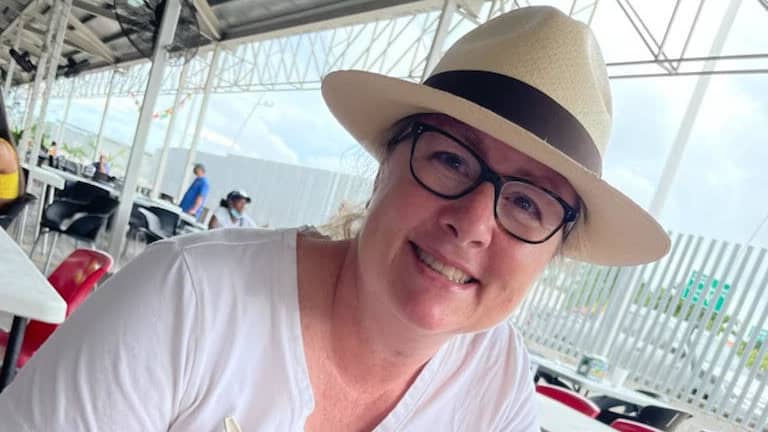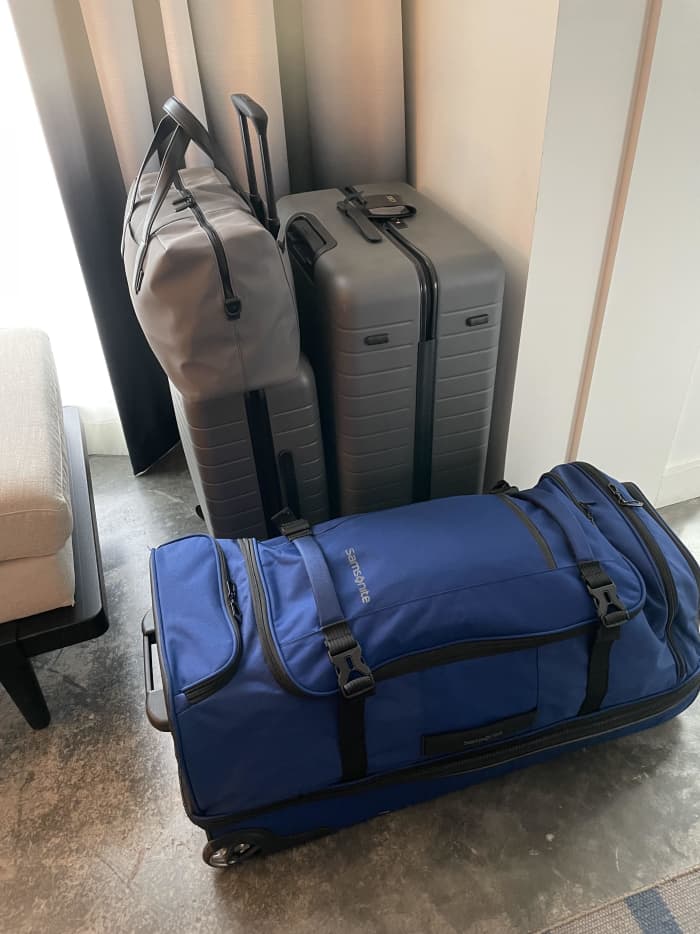This post was originally published on this site
The United States has always been divided, but in recent years this has been accompanied by a nasty, off the charts intolerance that each side seems to have for the other. Some Americans who can afford to do so are getting out.
Which is why Cheryl Smelson (a retired journalist) and her husband David (a sales manager who will work remotely) are kicking up their heels in Panama, where they moved on Sept. 1.
Cheryl, a former member of the White House press corps (we often sat together in the briefing room) tells me “the ugliness and divisiveness among the American people is a danger to democracy. We felt leaving the U.S. for a more peaceful environment was in our best interests.”
Not sure where you want to retire? Check out our tool

Cheryl
Why Panama?
Panama, described on one retirement site as “one of the top retirement destinations in the world,” boasting an “affordable cost of living and high standard of living,” quickly attracted their attention. “We wanted to live reasonably close to Maryland, where our son is attending college,” Cheryl says. “That pretty much ruled out Europe and Asia. We prefer warmer climates over colder, so that narrowed the field to Central America. We had vacationed in Costa Rica a few years ago, but our research led us to Panama (which borders Costa Rica) as the better choice for us. There is a large community of expat Americans active on social media who gave us lots of information about life on the ground.”
The quality of life for expats is good. “Panama currently has a lower Covid rate than the U.S.; a low crime rate; per capita income is high compared with other Latin American countries; and the government is stable,” Cheryl says. Panama also uses American currency, so there’s no need to change money or figure out what things cost.
Housing costs
In the capital of Panama City, dotted with skyscrapers, high-end shopping and abundant nightlife, a couple can live quite comfortably on $1,500 to $2,000 a month. If you and your spouse had nothing but the average-size Social Security check ($1,543 in 2021), you could do pretty well. The Smelsons can afford to spend more—$2,500 to rent a luxury apartment with gorgeous views—but you could get by on less.
Compared with most major American cities, those costs seem reasonable.
But Panama City is also blazing hot and dripping in humidity, and can have American-style traffic jams. Some retirees opt for nearby beach towns like Coronado, which are buffeted by cool breezes and quiet.
The Smelsons, who are renting on a short-term basis while they house hunt, are drawn to nearby mountain towns which are much cooler. Two are Santa Fe and Boquete, which can have California-like weather, but rents that can average—get this—about $500 per month. Boquete has tons of expats, many of them baby boomer retirees lured there by the cooler temperatures and low cost of living. Cheryl advises, however that
“Your average American likely will experience higher [than $500] costs because they’ll have higher standards (like hot-water in every faucet, reliable electricity, shop in more expensive grocery stores),” Cheryl advises.
Healthcare
U.S. healthcare is very good—if you can afford it. Fidelity, the Boston-based investment giant, estimates that the average American couple retiring at age 65 will need to spend a whopping $300,000 to cover healthcare expenses over the remainder of their lives. Panama offers socialized medicine to all for basic care, and according to the Smelsons, who cite comments made by other expats, “doctors in Panama are highly qualified, accessible, and costs are exponentially lower than in the U.S.”
But expats are still encouraged to have their own health insurance for comprehensive care.
Read: What it’s really like to retire on a Caribbean island — on $3,000 a month
Planning and preparation
Moving abroad is obviously a big deal and involves a lot of “planning, planning, and more planning,” says Cheryl. “Get advice from the people who have been there before you, but really understand your own circumstances. The definition of ‘low-cost’ means different things to different people. And be realistic about your priorities.”
The Smelsons also spent a year decluttering, getting rid of virtually everything they owned.
“It was done painstakingly, a little each day,” Cheryl says, and when they arrived in Panama, they were down to two large checked suitcases and a carry-on bag each. That’s it. There’s really nothing that can’t be bought in Panama anyway, she adds.
The Smelsons also set up a virtual mail service in the U.S., which will only forward essential pieces of mail. What’s “virtual mail?” Here are several companies that offer a variety of services.

The slimmed-down possessions Cheryl and David took with them to Panama.
Banking
One drawback: It’s harder to open a local bank account in Panama than in the U.S., Smelson says. The Panamanian law firm they hired to process their residency visas helped cut through red tape, and now they’re good to go. Wire transfers are common and so is cash — compared to the increasingly cashless and digital U.S. “We’ve found cash is used more commonly, although most restaurants in the (Panama) city take credit cards.”
It’s important to add that anyone seeking to apply for a permanent residency visa in Panama is required to retain a Panamanian law firm, Cheryl says. “Our law firm was among those recommended by the organization that specializes in helping Americans relocate to Panama. It’s an extra service to have the law firm help set up a bank account, but very well worth it in my opinion.”
She adds: “Our Spanish is not good (they’re learning) and government and banking officials mostly don’t speak English, so a bilingual law firm is extremely helpful.”
What about you?
Have you retired abroad? Are you thinking about it? Tell me where you are—or where you’re considering moving—and why? Help me share your advice with others. Write to me at RetireBetterMarketWatch@gmail.com — and thanks.
Read: We want a $250,000 home an hour from the mountains or the ocean. Where should we retire?

